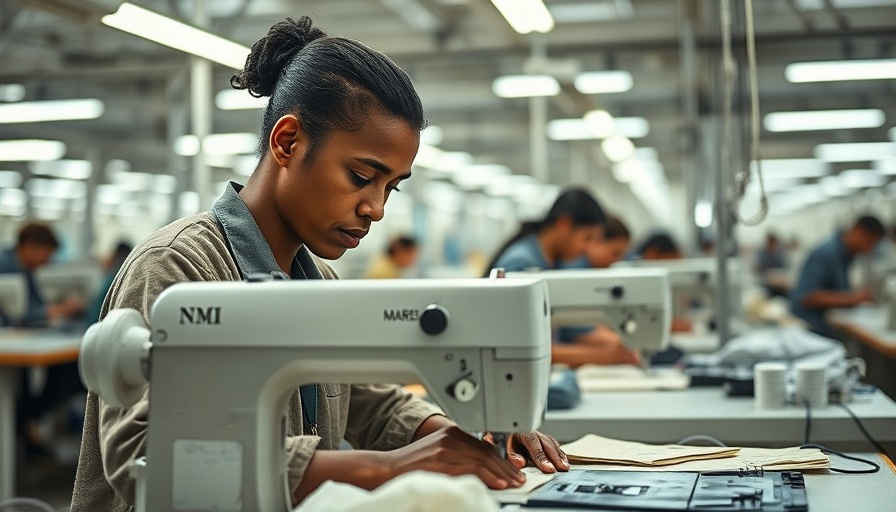
Understanding the Climate Crisis Impacting Fashion Workers
The fashion industry is at a critical juncture where climate change is not just an environmental concern but a pressing social issue affecting millions of garment workers in the Global South. As extreme weather events increase, countries like Bangladesh, Cambodia, and Vietnam are projected to face significant reductions in their fashion-related earnings, which may drop by 22% by 2030, leading to a potential loss of one million jobs. This stark reality, as highlighted by Jason Judd from Cornell University’s Global Labor Institute, emphasizes the urgent need for climate adaptation measures for these vulnerable workers.
The Role of Wages in Climate Adaptation
One of the most effective yet overlooked solutions to help garment workers adapt to climate-related stresses is the adjustment of wages. Current practices in Bangladesh, where minimum wages are reviewed every five years, lead to prolonged periods of financial instability for workers. In contrast, neighboring Cambodia now sets annual wage reviews, allowing workers to better cope with inflation and climate challenges. However, the fashion supply chain's reluctance to increase wages stems from fears that this will affect competitiveness. Yet, lessons from Cambodia show that investing in worker well-being does not have to come at the cost of business growth.
Cash as a Catalyst for Change
When it comes to adaptation strategies, immediate financial assistance is critical. As workers in Dhaka report, many are forced to sell personal belongings just to pay their electricity bills during heat waves. More flexible and higher wages could provide the cash necessary for families facing rising costs due to climate extremes, allowing them to afford essentials like fans or medicine. This practice highlights the importance of making cash accessible to those most affected by climate change within the manufacturing sector.
Rethinking Corporate Responsibility
Historically, many fashion brands have treated climate change as a distant concern. However, this mindset is shifting as corporate responsibility becomes increasingly scrutinized. European regulations are pushing brands to disclose their climate impacts and exposure to risks. As businesses adapt to this new regulatory environment, developing robust policies and practices that prioritize worker safety and sustainability will be crucial. Any willful neglect could potentially lead to liability issues, thus emphasizing that brands must engage actively in climate action.
Creating a Framework for Worker Protection
To truly protect garment workers from the increasing threat of climate change, the industry must establish clearer standards for working conditions. There is an urgent need to develop regulations that address extreme heat and workplace safety. This proactive approach can not only enhance worker protection but also promote corporate accountability and resilience in the face of climate challenges. A comprehensive framework will require collaboration between governments, brands, and workers to ensure that both economic viability and human rights are prioritized.
What We Can Learn from Global Actions
The ongoing climate crisis presents an opportunity for the fashion industry to emerge as a leader in sustainable employment practices. As businesses eye the future, integrating sustainability into their core values can set them apart in a crowded market. By attending to the needs of workers who face climate-related adversities, the industry can pivot towards ethics and social responsibility as standard practice. These changes will not only benefit workers but will also create a more resilient global economy capable of withstanding future climate challenges.
Why Sustainable Fashion Matters
Adapting to climate change isn't merely about sustainability; it’s about survival—both for workers and the fashion industry as a whole. By committing to fair wages, corporate accountability, and worker protections, fashion brands can foster healthier communities and a healthier planet. Embracing sustainability as a fundamental principle aligns the industry with the growing consumer demand for ethical practices, leading to lasting change.
Call to Action
As eco-conscious consumers, your choices can help reshape the future of fashion. Advocate for transparency, ethical sourcing, and higher wages in the fashion industry. When purchasing clothing, seek out brands that prioritize sustainability and worker rights. Together, we can make a significant impact toward a fairer, greener world.
 Add Row
Add Row  Add
Add 



Write A Comment